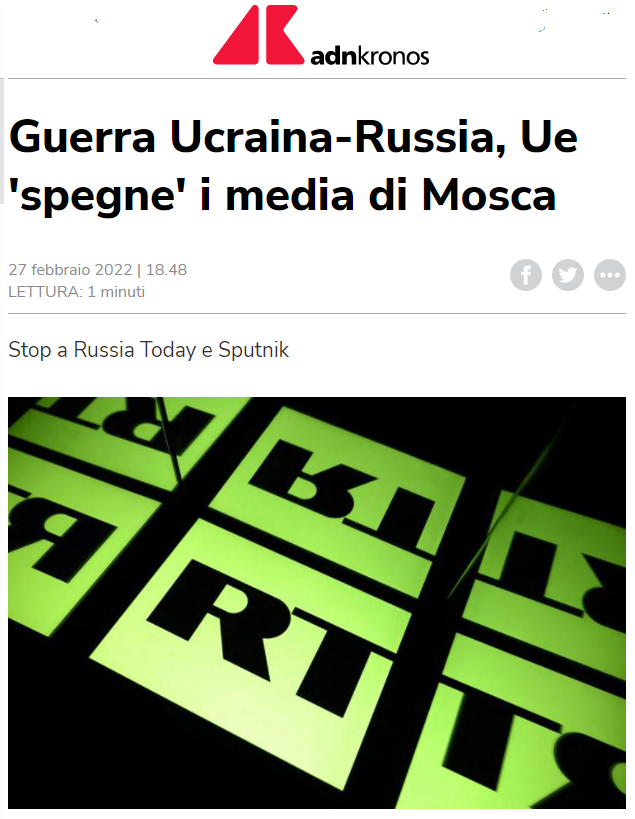
Source
February 26: Social networks react
After Facebook, Meta extends profile protection to Instagram; YouTube blocks some Kremlin-run media (preventing ads and revenue generation) and puts videos at the bottom of the recommendation list. Twitter restricts access to major telecom providers.
February 27: After Facebook, it’s Twitter’s turn. The EU takes the field and shuts down state media
Without making official announcements, activity on Twitter is slowed down, as Netblocks, which does global-scale monitoring of how the Internet works, notes. Users can get around the obstacles by masking their identity by accessing from a VPN network (which by preventing localization ensures privacy). European Union blocks Russia Today and Sputnik: the President of the European Commission Ursula von der Leyen, during a press conference in Brussels announces that Russian state-controlled media and their subsidiaries will no longer be allowed to broadcast their lies. YouTube also blocks Russia Today and prevents it from monetizing content globally.
February 28: Foiled by social hacking of Ukrainian public figures
Facebook removes fake accounts activated by Russia and Kyiv to target public figures in Ukraine. Twitter suspends more than a dozen accounts and blocks the sharing of several links.
